Our Verdict
The Nuraphone's invasive design takes some getting used to but it has some of the best active noise control we've experienced for gaming and listening to music.
For
- Beautiful design
- Excellent personalized sound
- Top-notch active noise control
Against
- Very expensive
- Overly sensitive touch buttons
- Lack of customization
PC Gamer's got your back
For years now, I've heard about the Nuraphone from folks who've backed it on Kickstarter. As it turns out, people who like Nuraphone headphones really like Nuraphone headphones.
The Nuraphones have already gone through a handful of significant updates since their successful Kickstarter launch three years ago. Most notably, the introduction of active noise cancellation (ANC) software update and a gaming microphone attachment ($50), in an attempt to rival even the most premium gaming headsets.
You'll notice something a little different about the Nuraphones from the images below, and I'm sure you're already asking, 'what's the point of those things on the inside?'
Aside from giving you two layers to block outside noise, the twinned design also offers parallel drivers on each ear. The uvula-like in-ears offer the upper-frequency goods and leave the low-tones and deep bass to the better-suited over-the-ear portion. It's like having a pair of speakers for both left and right channels.
The Nuraphone is, simply put, a beautifully designed headset with a lovely compromise of silicone and stainless steel. It's simple, modern, and isn't embarrassing to wear in public. The minimalist design gives me plenty of Bose NC Headphones 700 vibes with its slim headband and roomy ear cups.
The Nuraphone's party trick will also tune the headset precisely to your ears using Otoacoustic Emissions (via the Nura mobile app), which essentially pings your ears with low-level sounds creates a sound profile based on the results. It sort of sounds like those tests they make you take as a kid to check your hearing.
Since every pair of ears is different, having your soundstage tailored to your ears saves you the trouble of customizing your EQs. As much as I love having control over everything, there's something to be said for science doing the work for me. Below is a shot of my hearing profile; I wish I could tell what this says about my hearing outside of that. It looks quite pretty.
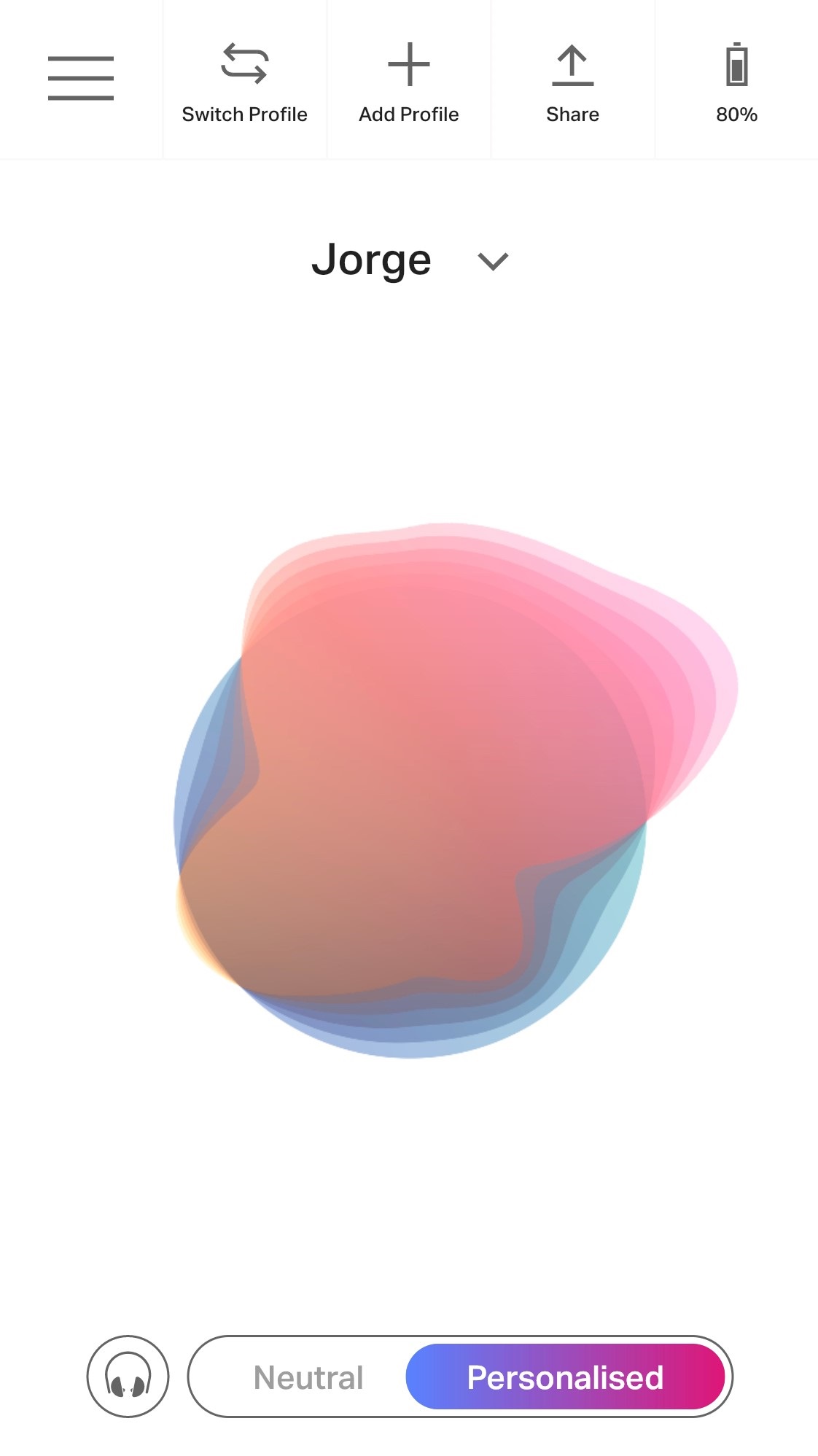
As much as I dig the look of Nuraphones, there are limitations in the design that affect day to day use. The lack of controls or knobs puts you in this weird position of having to choose what sort of headset controls matter to you the most. Each side of the headphones has one touch-sensitive button that relegates things to single and double-tap controls. I wear glasses, so whenever I fiddle around with the headphones to get the right fit, I'm always accidentally tapping the capacitive buttons. I find myself skipping tracks or suddenly playing music in the middle of a work call more often than I appreciate.
This means the Nuraphones can do a maximum of four of eight pretty common things you may want to do at a moment's notice on a headset. Volume up, down, next track, and the previous track are where I left things, though you could argue being able to pause and play music, answering a call (in Bluetooth mode) is also pretty important.
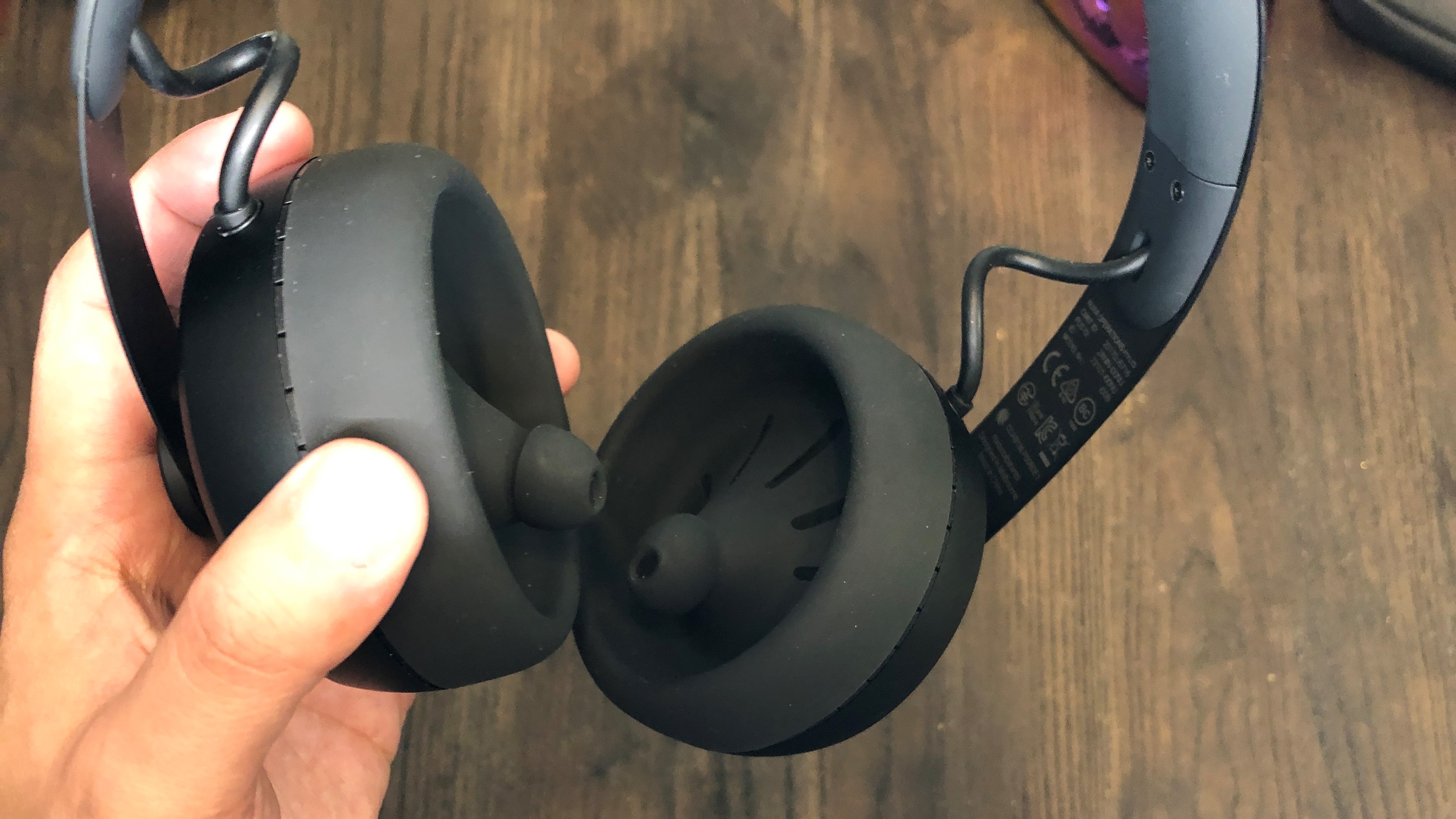
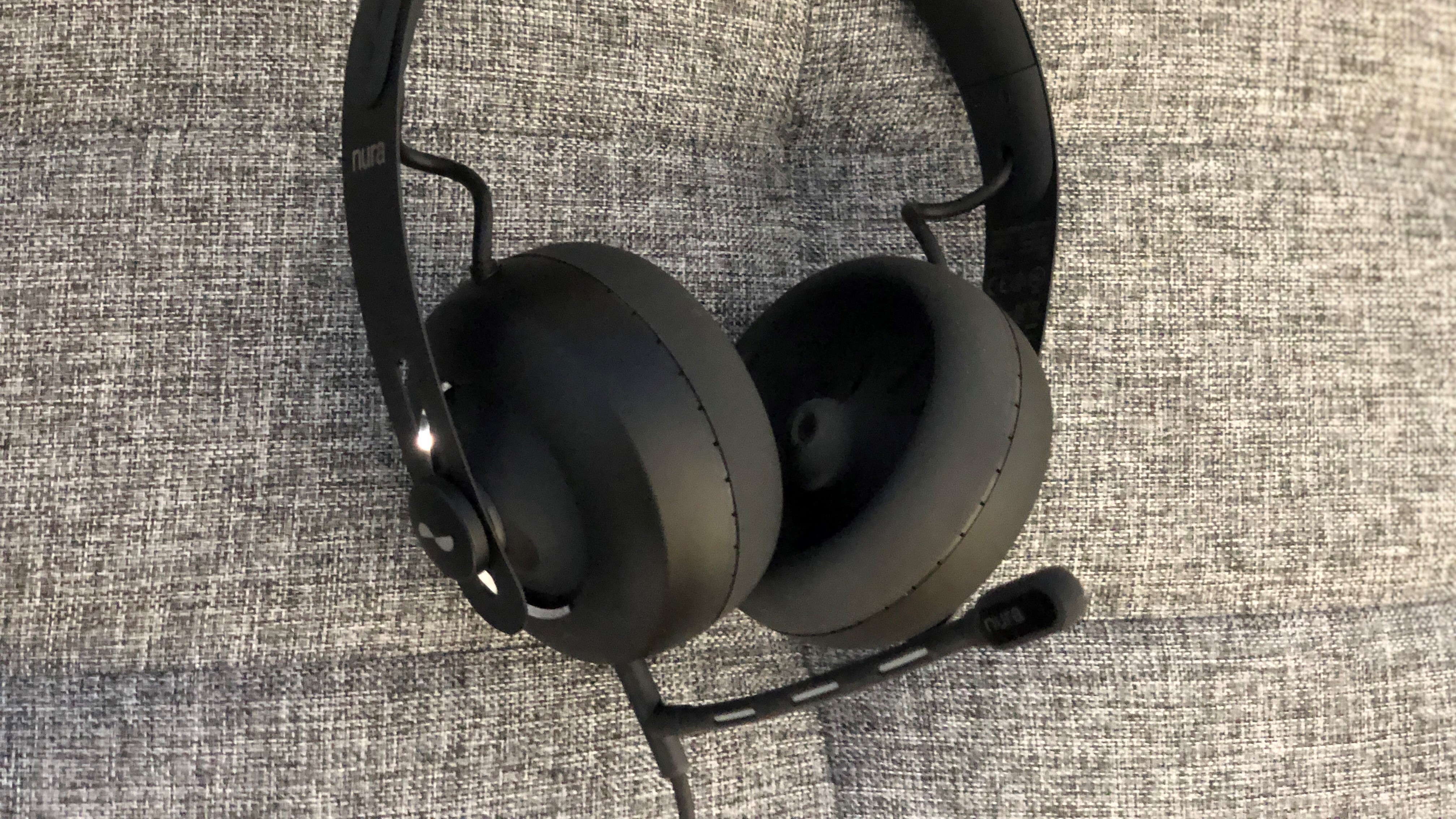
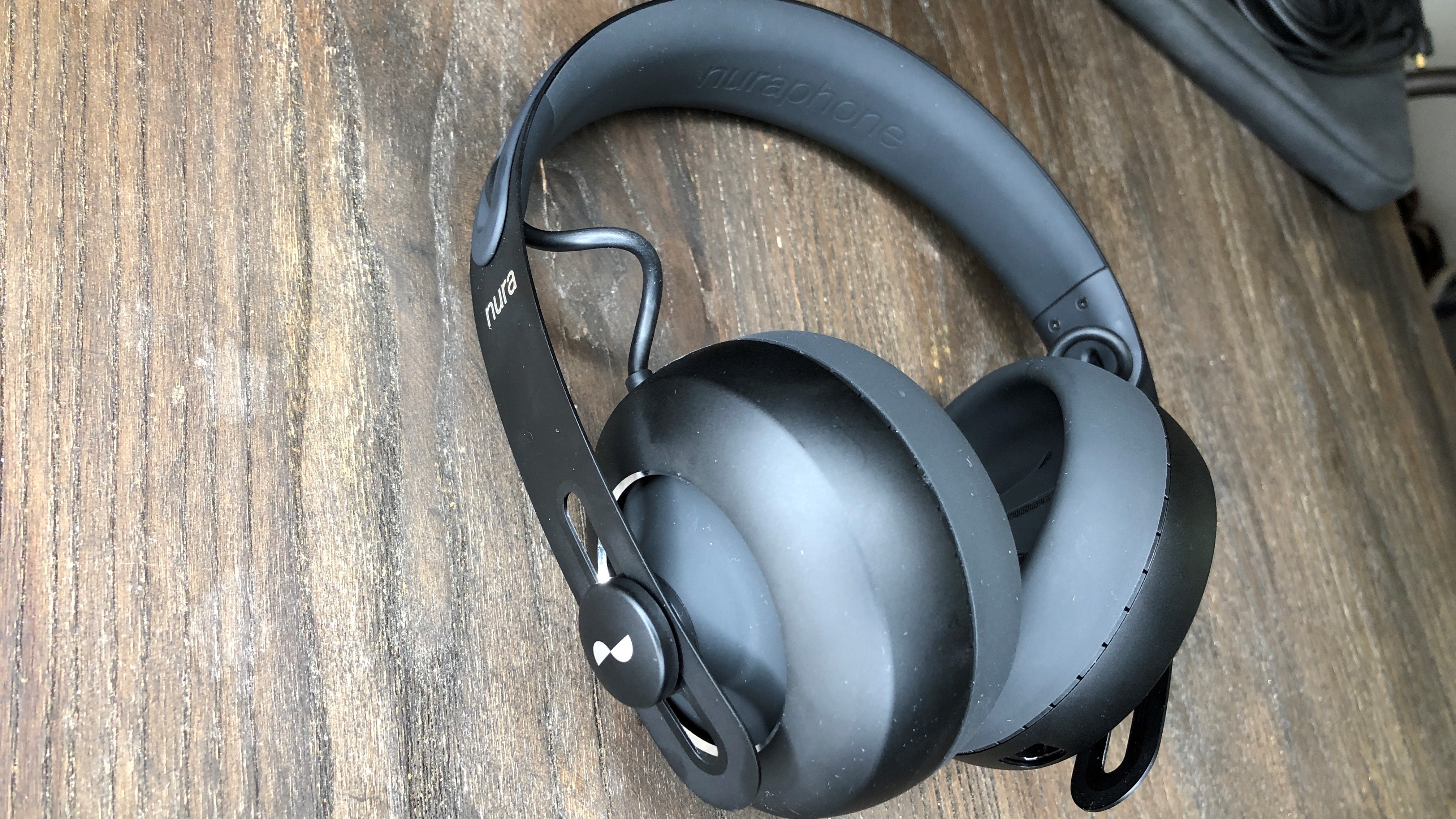
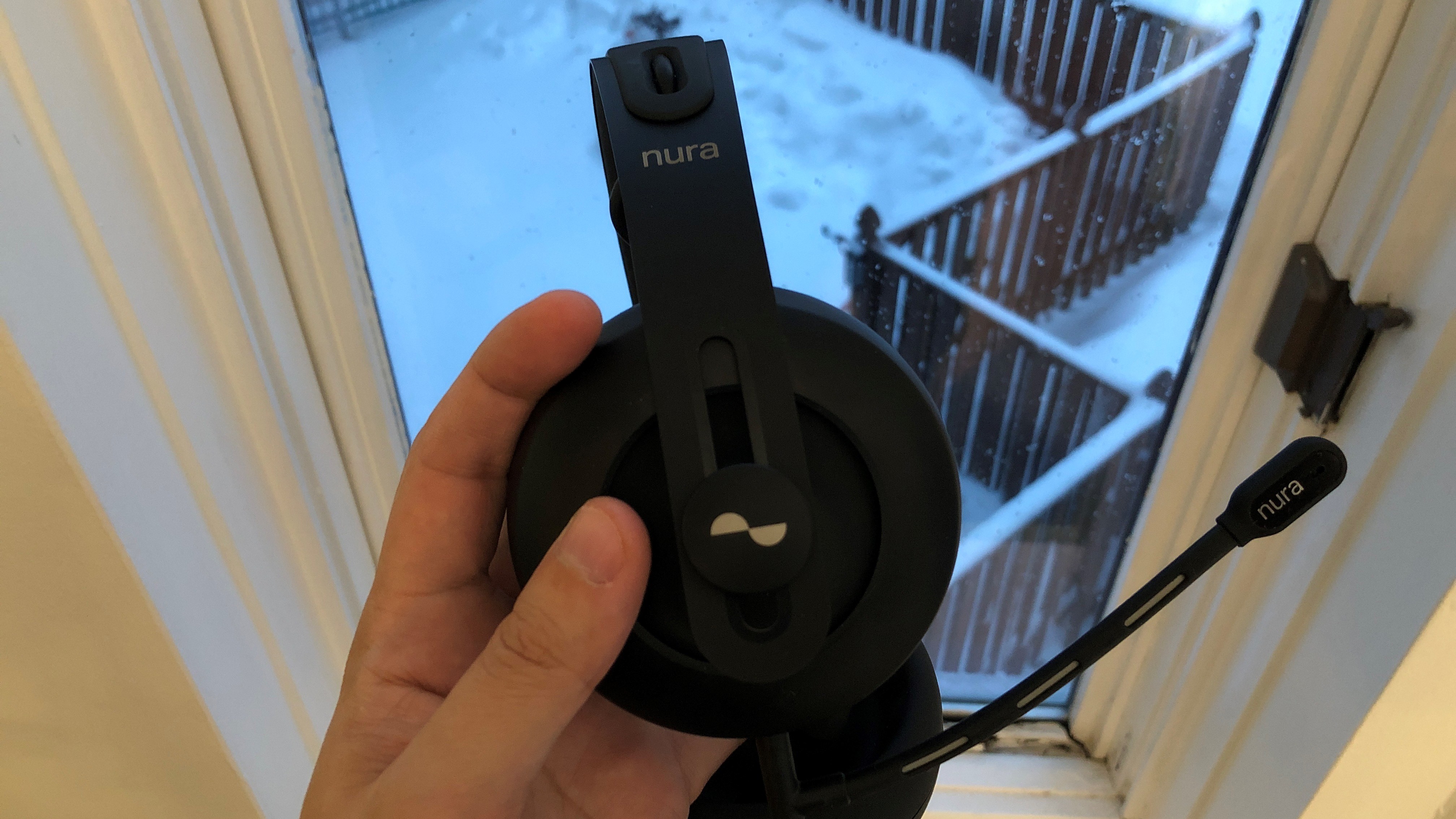
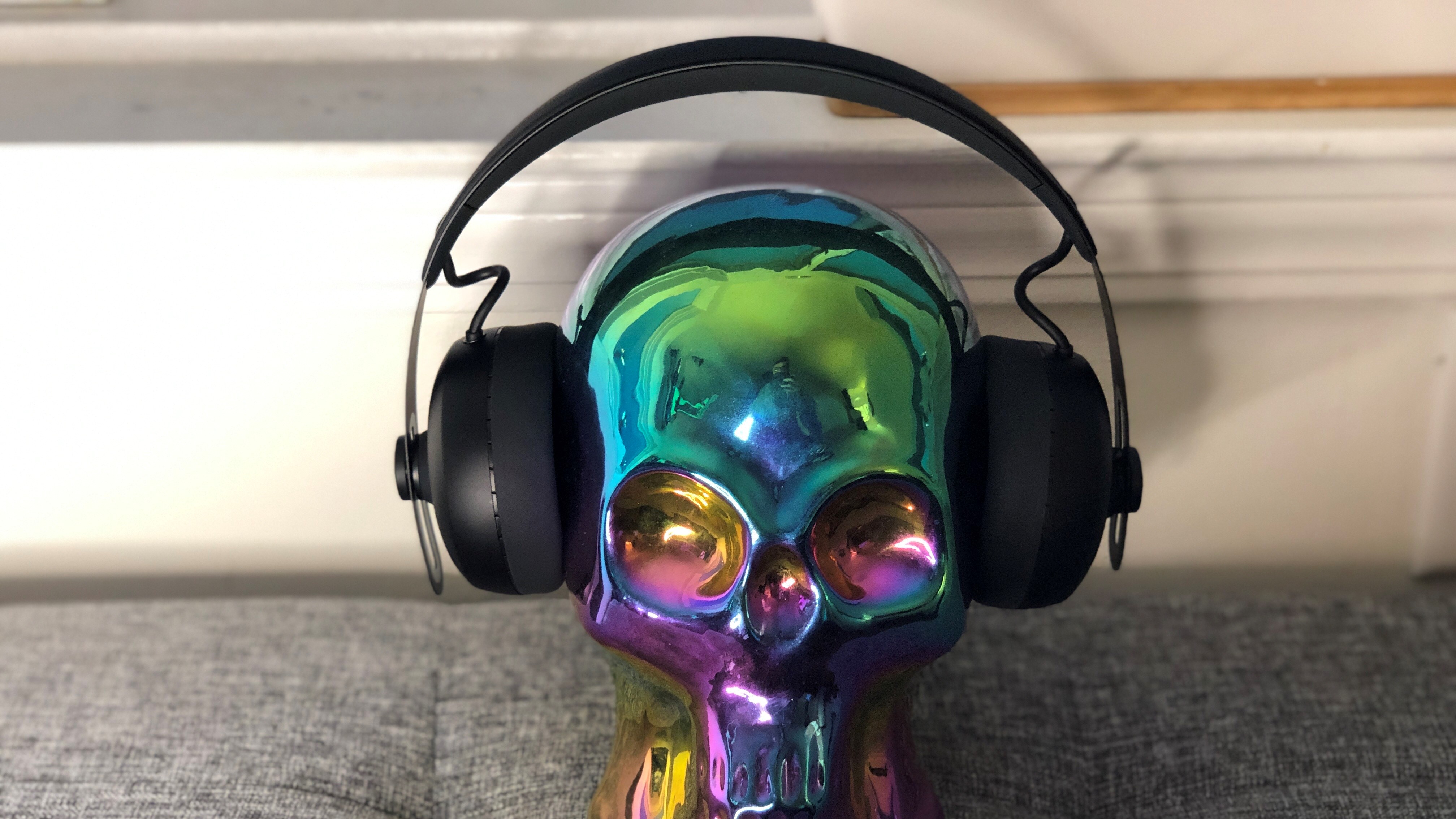
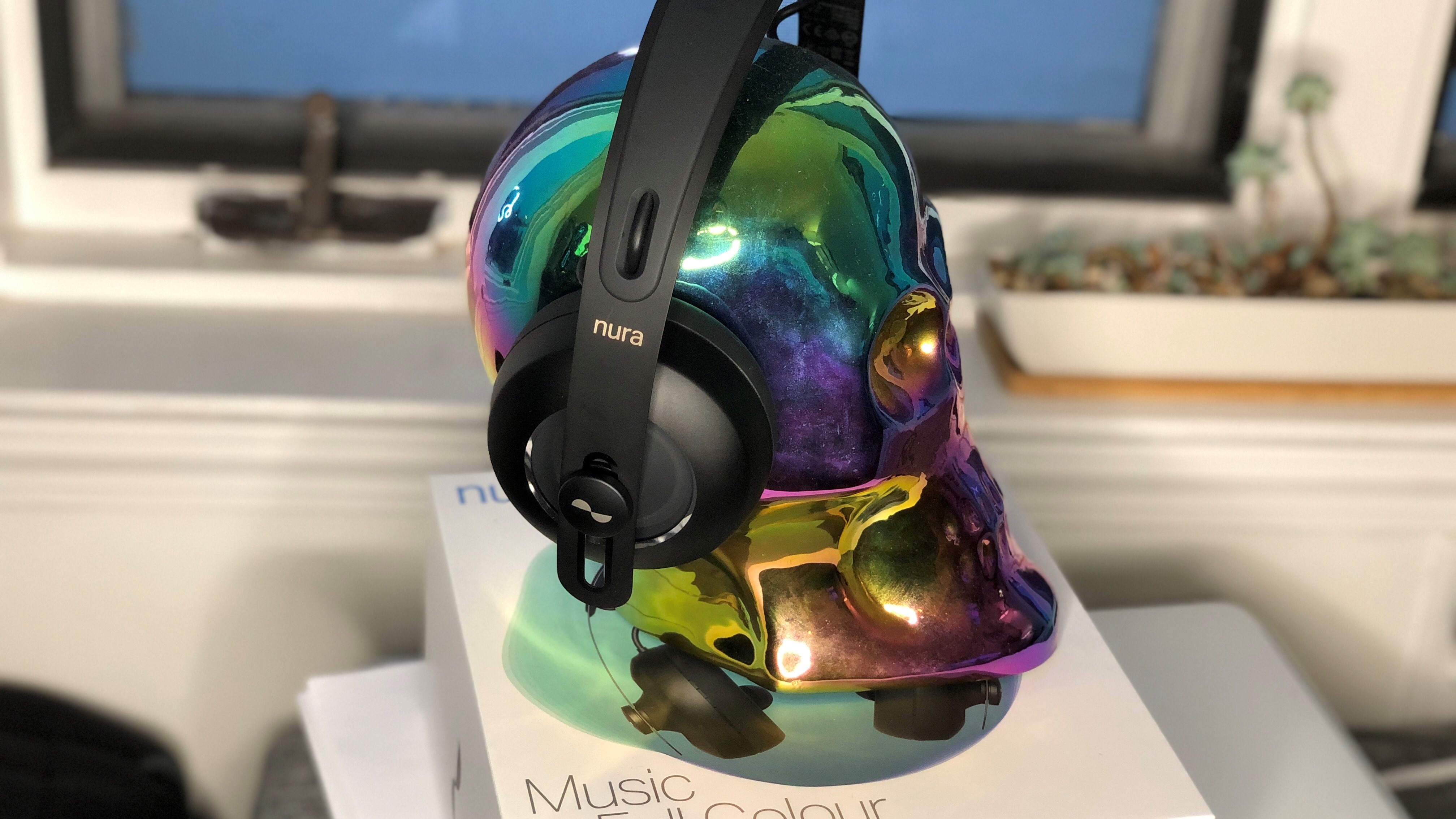
Driver-type: Dynamic inner ear: 15mm, outer ear: 40 mm
Frequency response: 20–20KHz
Microphone frequency response: 100–10KHz
Design style: Closed-back/earbud
Microphone: Detachable Unidirectional noise-canceling (optional)
Connectivity: Bluetooth, 3.5mm
Battery Life: 20 hours
Weight: 299g
Price: $399 + $50 for gaming microphone
Another hurdle is customizing the touch-buttons, which is done via a smartphone app—it requires you to reconnect the Nuraphone to that smart device then back to your PC. The app is also the only way to engage with the Nuraphone's cooler personalization features. Nura has no plans to migrate this to a desktop app.
Despite these issues, the Nuraphone offers incredible sound. The personalized audio tuning feels like the headphones are providing the 'right sound' for my ears.
Playing Hitman 3 with ANC on and immersion cranked up while stalking my targets through a thumping Berlin nightclub overwhelmed me in the best way possible. When listening to music, I usually see how high I can get the bass because I'm that guy. Having the headset decide what's best for me let me appreciate the headphone's broader range of sound, instead. A welcome change of pace.
Would I have loved to adjust the EQ myself? Yes. But if they get it right, I'm OK letting go of some control.
As an everyday Bluetooth headset, I did have issues when making phone calls with some distortion and voice cutting in and out.
Yet it's the microphones on higher-end headphones that are usually the most common reason we don't recommend them for gaming. There's always a latency, or they simply don't sound great. The Nuraphone is guilty of this. Nura hopes to alleviate that problem by offering a $50 gaming microphone attachment. Great if you're looking to game with them and not spend another couple of hundred bucks on a gamer-centric headset just for your PC or console.
The microphone connects to your PC or game controller via a 3.5 mm jack. There's even a secure hook attachment to ensure the microphone doesn't pop out during more animated gameplay sessions. The microphone itself is loud and clear, as you can hear in the clip above, which works when communicating with teammates in Apex Legends or just messing around in a Discord channel. The downside is the wireless headphones have now become a wired gaming headset.
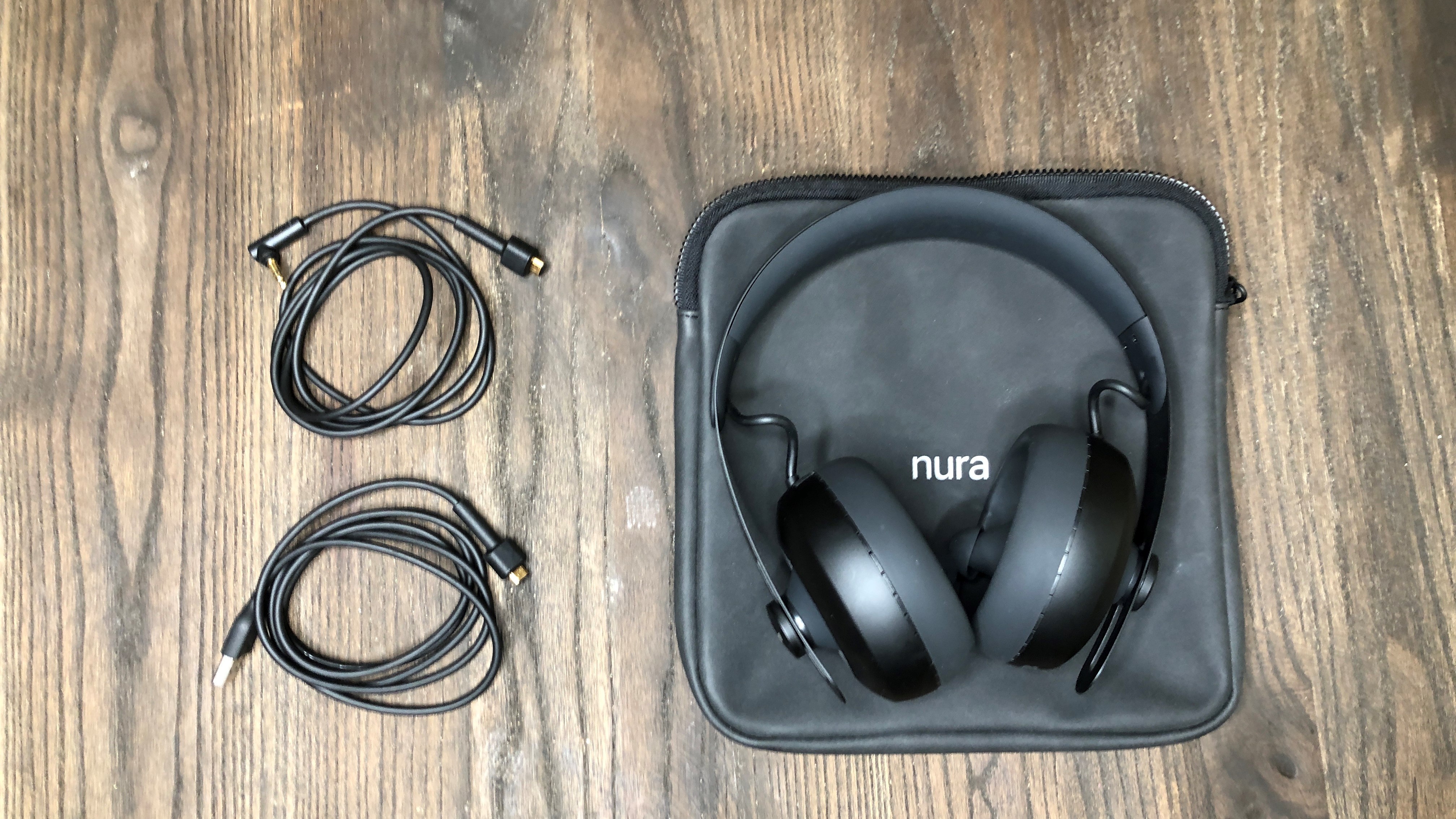
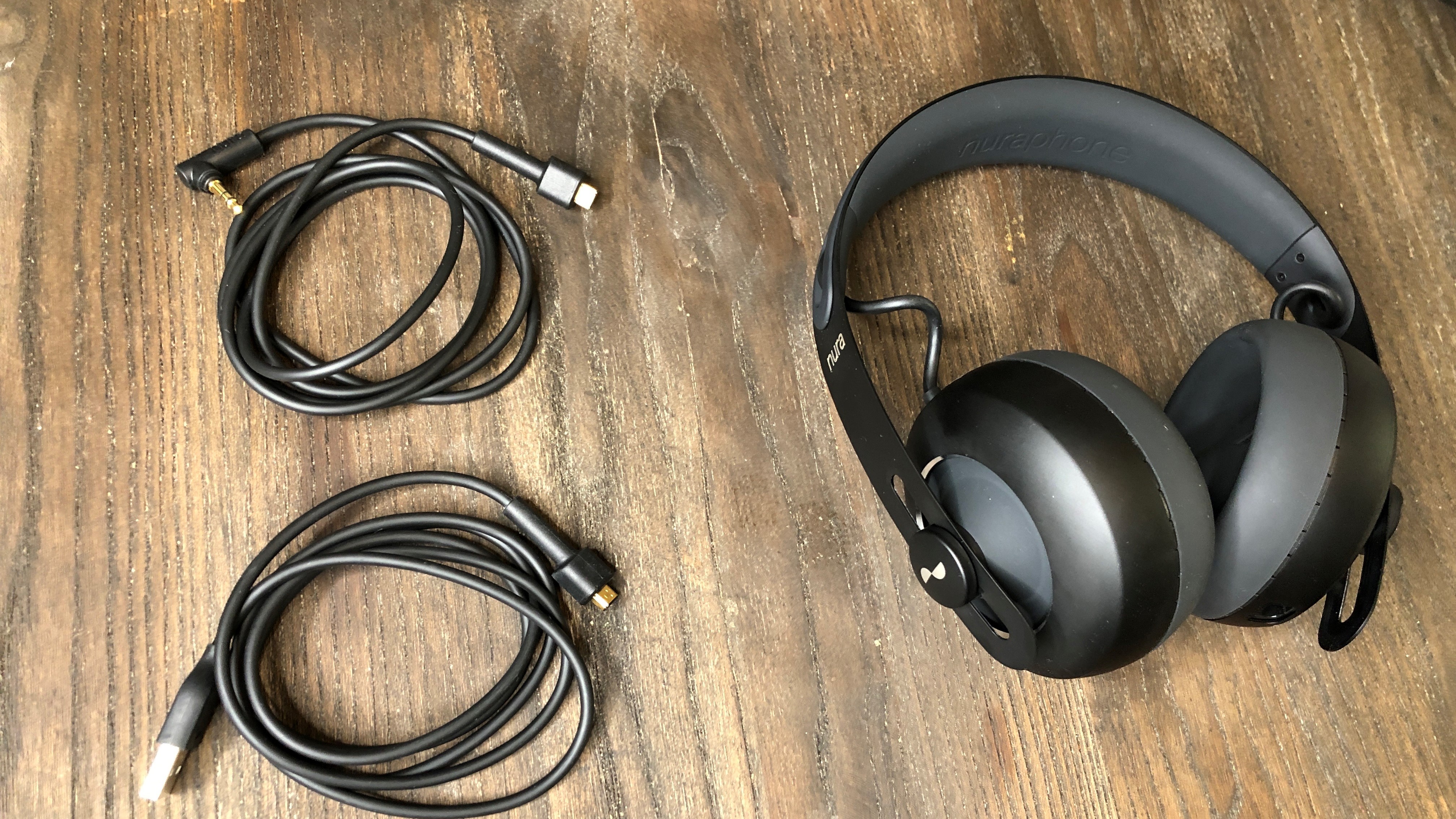
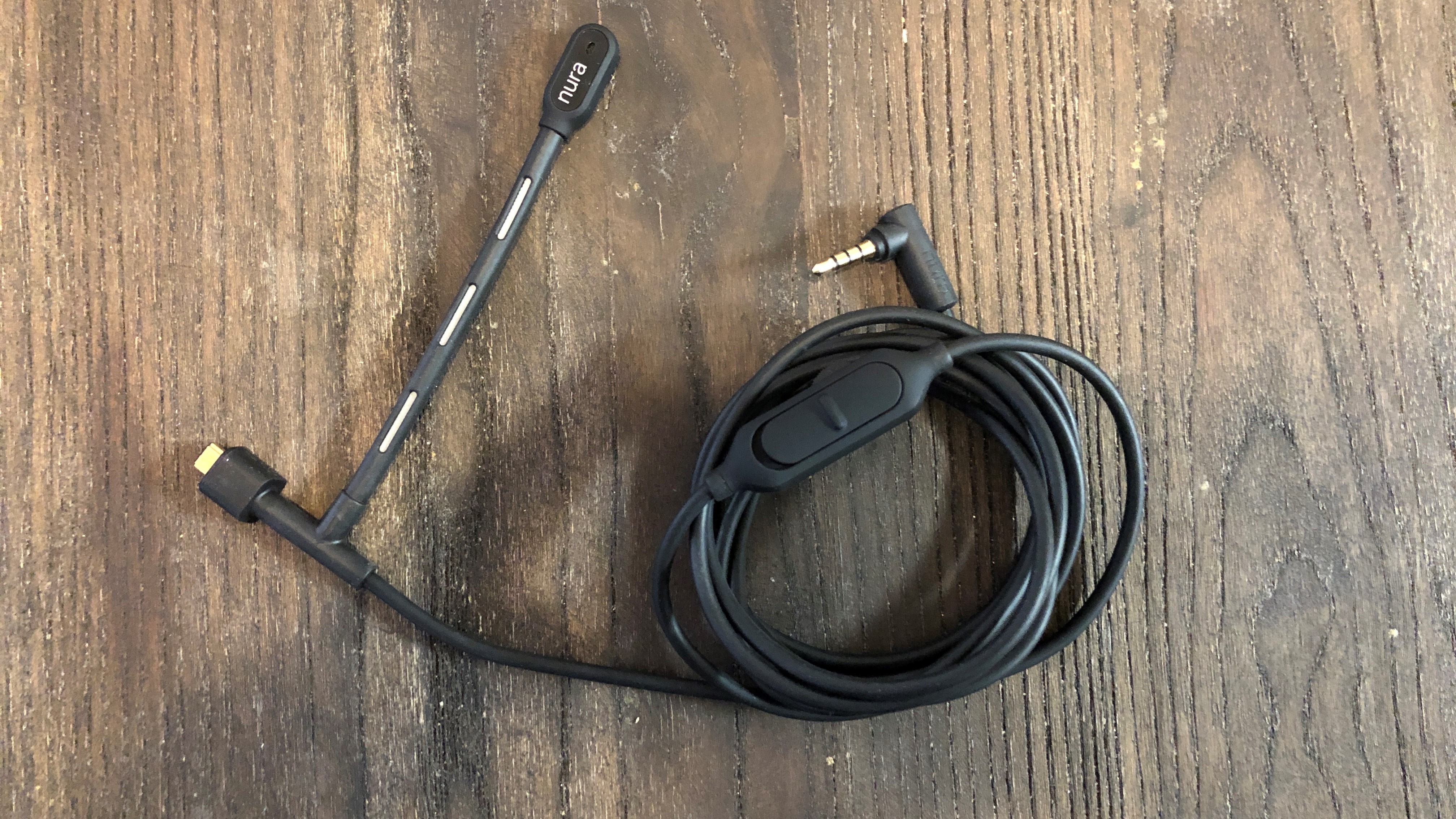
What I never got used to was the Nuraphone immersion mode. It uses the ear drivers to vibrate the headset to simulate being at a live concert and having the bass shake up the place. I prefer the immersion mode set on to the lower end of the spectrum as I found my head being shaken by gunfire and hand grenades in the Call of Duty: Warzone too jarring and distracting. Though, if you want to hear some genuinely irresponsible levels of bass, by all means, crank it up.
The active noise cancellation on these cans is pretty fantastic; I was able to drown the on-going construction happening in my apartment complex, which has been bleeding into my workspace (and brain) for weeks now. Social mode cancels out the ANC and allows you to pick up the sounds around you, which is useful for commuters, or if you just refuse to remove your headphones for any reason whatsoever.
When the headset is plugged in you lose out on touch controls, which means you won't be able to toggle off social or immersion modes. Indeed, when plugged in, the Nuraphones tend to lose most of their standout wireless features. The Nuraphone averages around 20 hours of battery life. Since there is no on/off button, the headset will automatically turn off and on whenever you put it down, which is an excellent way to stretch out that battery a little further. Each time you put the Nuraphone on, you're greeted with a personalized hello along with the remaining battery life.
The Nuraphone is an excellent set of wireless headphones, and the gaming microphone attachment makes it a decent gaming headset. It's one of the best looking pair of cans you find right now, and custom sound profiles offer rich and detailed soundscape like no other thing out there. If you're looking for a headset for just gaming, the Nuraphones aren't it, though—$450 (adding in the microphone, which is a must for gaming) is simply too huge an ask if you are mostly looking for gaming-centric features.
The Nuraphone's invasive design takes some getting used to but it has some of the best active noise control we've experienced for gaming and listening to music.

Jorge is a hardware writer from the enchanted lands of New Jersey. When he's not filling the office with the smell of Pop-Tarts, he's reviewing all sorts of gaming hardware, from laptops with the latest mobile GPUs to gaming chairs with built-in back massagers. He's been covering games and tech for over ten years and has written for Dualshockers, WCCFtech, Tom's Guide, and a bunch of other places on the world wide web.

